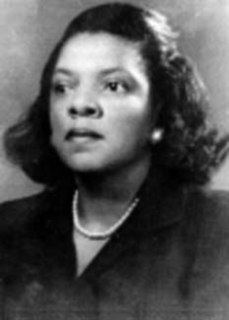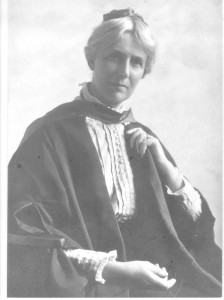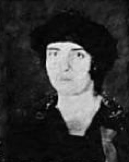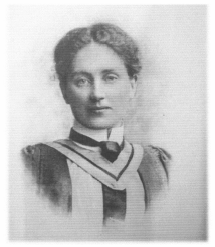Douglass Residential College, a school part of Rutgers University, is an innovative undergraduate higher education institution specifically for women, which succeeded the liberal arts Douglass College after it was merged with the other undergraduate liberal arts colleges at Rutgers to form the School of Arts and Sciences in 2007. Female students enrolled at any of the academic undergraduate schools at Rutgers–New Brunswick, including, e.g., the School of Arts and Sciences, School of Engineering, School of Environmental and Biological Sciences, School of Pharmacy, Mason Gross School of the Arts, may now also enroll in Douglass Residential College, at which they must satisfy additional requirements specific to the college. Douglass seeks to provide the benefits of a close-knit small community of women students and offers programs specially designed to help women students to identify their unique abilities and develop confidence. These programs include, for example, a strong emphasis on global education, including opportunities to participate in service/learning trips in foreign countries, and a wide range of training and enrichment activities offered by a career and leadership development center.

Marjorie Lee Browne was a mathematics educator. She was one of the first African-American women to receive a Ph.D in mathematics.
Margaret Annie Wileman was a British academic administrator, lecturer in education, and teacher. From 1953 to 1973, she was Principal of Hughes Hall, Cambridge, and a lecturer in education at the Faculty of Education, University of Cambridge. She had previously taught at The Abbey School, Reading, and at Queen's College, London; two all-girls independent schools. She had also lectured at St Katherine's College, Warrington, and at Bedford College, University of London

Ida Freund was the first woman to be a university chemistry lecturer in the United Kingdom. She is known for her influence on science teaching, particularly the teaching of women and girls. She wrote two key chemistry textbooks and invented the idea of baking periodic table cupcakes, as well as inventing a gas measuring tube which was named after her.

Margaret W. Wong is a naturalized American immigration lawyer who created an immigration and nationality law practice in 1978, of which she is senior and managing partner.

Millicent Hughes Mackenzie was a British professor of education at University College of South Wales and Monmouthshire, the first female professor in Wales and the first appointed to a fully chartered university in the United Kingdom. She wrote on the philosophy of education, founded the Cardiff Suffragette branch, became the only woman Parliamentary Candidate in Wales for 1918, and was a key initiator of Steiner-Waldorf education in the United Kingdom.

Elena Torres Cuéllar was a leading Mexican revolutionary, feminist, progressive educator and writer. A member of the communist party, in 1917 she was the only woman to participate on behalf of the Liga Central de Resistencia at the first meeting of the Yucatán Socialist Party in Mérida. In 1919, she founded the Mexican Feminist Council campaigning for better social and economic conditions for women as well as the right to vote. She devoted considerable efforts to improving education in Mexico, especially by facilitating the training of primary school teachers in rural areas.

Mabel Palmer (1876–1958) also known as Mabel Atkinson in her first career, was a British-born, suffragist, journalist and lecturer. After her marriage, she began a second career as a South African educator and academic, using her married name. One of her most noted accomplishments came after her retirement from teaching, when she spearheaded a movement to provide university education for non-white students. After providing free courses in her home for a decade, she became director of the segregated courses offered by the Natal University College, serving from 1945 to 1955. After her second retirement, Palmer continued publishing until her death in 1958.
Rachel McMillan (1859–1917) was an American health visitor and advisor on education. She is also the founder of the McMillan Student Village in Deptford. This is used by students of Trinity Laban. She came to notice due to the efforts of her sister Margaret McMillan, who memorialised her life after her death.

Alice Margaret Cooke was a British historian and writer. Cooke catalogued the books in the John Rylands Library and she helped in the development of higher education for women in Manchester.
Dame Margaret Blackwood was an Australian botanist and geneticist. She attended the University of Melbourne and lectured there for the majority of her career, becoming deputy chancellor after her academic retirement. She was appointed Dame Commander of the Order of the British Empire in 1981 and was inducted posthumously into the Victorian Honour Roll of Women in 2001.

Janet Anne Galloway (1841–1909) was an advocate for higher education for women in Scotland, supporter of the Glasgow Association for the Higher Education of Women and secretary of Queen Margaret College.
Betty Campbell was a community activist and Wales' first black head teacher. Born into a poor household in Butetown, she won a scholarship to the Lady Margaret High School for Girls in Cardiff. She later took the opportunity to train as a teacher and in due course become head teacher of Mount Stuart Primary School in Butetown. She put into practice innovative ideas on the education of children and was actively involved in the community.
Noorunnahar Fyzennessa was the first elected women syndicate member of University of Dhaka and National pay commission of Bangladesh. She was a Bangladeshi feminist and social activist.
Helen Marion Wodehouse was a British philosopher and Mistress of Girton College, Cambridge. She was also the first woman to hold a professorial Chair at the University of Bristol.
Patricia D. Shure is an American mathematics educator. With Morton Brown and B. Alan Taylor, she is known for developing "Michigan calculus", a style of teaching calculus and combining cooperative real-world problem solving by the students with an instructional focus on conceptual understanding. She is a senior lecturer emerita of mathematics at the University of Michigan, where she taught from 1982 until her retirement in 2006.

Jahana Flemming Hayes is an American educator and politician who is the U.S. Representative for Connecticut's 5th congressional district. She has been recognized as a state and National Teacher of the Year. She is the first African American woman and first African American Democrat to represent Connecticut in Congress.

Hannah Moylan (1867-1902), first woman to get a degree in Science in Ireland
Edith Lyle, "M.K. Ashby, a Commemorative Portrait" (privately produced, available for loan from Gloucestershire libraries)













